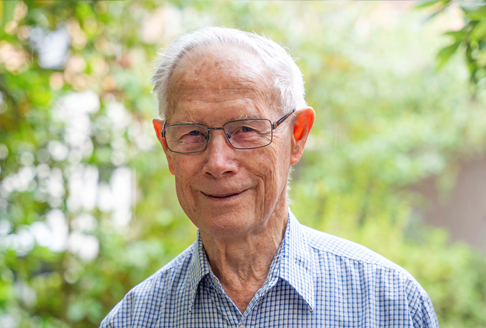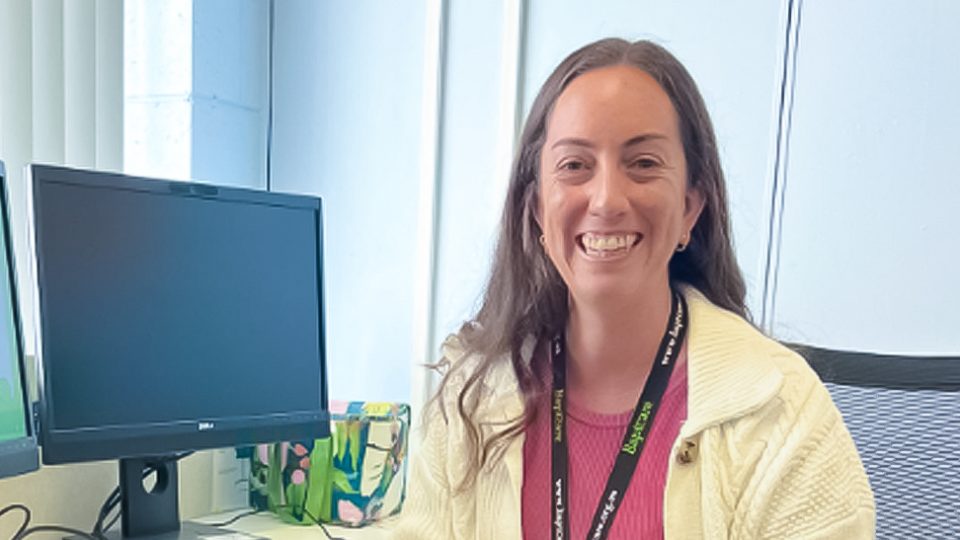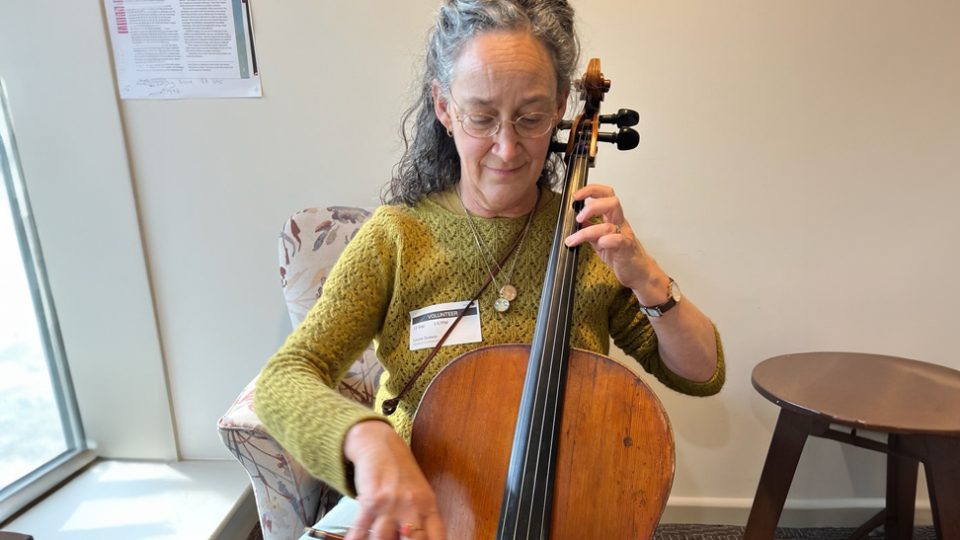Gentleman Jim makes a difference by lifting others at Karana
- 08 Mar 2024

If you look up ‘Gentleman’ in the encyclopaedia, don’t be surprised if it has a photo of Jim Allinson.
A much-loved member of Baptcare’s Karana residential aged care community, Jim has a caring word or action for every resident or staff member he encounters.
“Treating people well is important,” he says. “We need to look after each other.”
Although born in Elsternwick, Jim lived in a string of country towns as a child. His father was posted to different schools as a Maths, Science and Agriculture teacher, but Jim was not so enamoured of the classroom.
“I wasn’t a very good student,” he recalls. “All I wanted to do was get to the weekend when I would go out to farms and ‘help’, in inverted commas.”
At the age of 15 he left school in Shepparton to assist in running his Uncle Bill’s dairy farm near Cobram. However his father insisted that if he was successful in gaining entry to the agricultural college at Dookie, he must enrol.
That is what happened. Jim describes his time at Dookie College as three of the best years of his life. In his final year he was College Captain.
He developed an interest in soil and land use which led to employment with the newly-established Soil Conservation Authority. For the next 25 years he travelled all around Victoria, working on erosion, land management and related issues.
“At that time there was a high percentage of farmers not treating the soil resource well, but there have been tremendous changes in understandings and actions around ecology and agriculture since then,” he says.
Farmers, shire engineers and other land users sought advice on control and prevention of soil erosion and improvement of land productivity. Jim served in senior management positions with the Soil Conservation Authority and the National Parks Service.
He also worked overseas on land management improvement with the Food and Agriculture Organisation of the United Nations. During a posting north-east of Cairo, working between Mersah Matruh and the Siwa Oasis, Jim focussed on land management improvement while his wife Mary – a Home Economist – worked with a young female Bedouin Land Management graduate on helping women improve family nutrition and child development within their desert living conditions.
On returning to Australia, Jim taught Land Management at Ballarat University College, as well as engaging in further overseas work in the Cook Islands and Zimbabwe.
Through it all, Mary McDonald from Shepparton was by his side.
They first knew each other through being in the same remedial maths class at Shepparton High School. They had a long and happy marriage and have three children. Jim was Mary’s carer for the last decade of her life.
“Of course I wish Mary was still here, but I’m proud to say that if I could choose any three people to be with, it would be my children. I just love them and I love being with them.
“We booked Mary into Respite Care at Karana. When we saw how well staff cared for you, we changed to permanent, and I booked in full time too. That was over three years ago, and I am so glad and grateful to be one of the Karana family.”
Karana community members love being with Jim, too, because of the way he is always on hand for an encouraging word or to help out.
“I call Jim the Cary Grant of the home,” says Bryan Mooney, Baptcare’s Volunteer Program Specialist. “He is a true delight and in truth a bit of a role model for me. I asked his advice on how to be the best husband to my beautiful wife just before I got married.”
“I enjoy living here very much,” Jim says. “The Karana staff are just marvellous. You hear stories about places that don’t have good staff, but it’s the reverse here, with their dedication and the high quality of their care. These are such thoughtful, caring people.”
Which is of course a perfect description of you too, Jim.
Community news
-

Student Volunteer Spotlight - Erin
Did you know that Baptcare has student volunteers at some of our Residential Aged Care communities? Our volunteers are an integral part of our Baptcare community, not only in residential aged care but across many of our programs and services. Volunteers provide essential connection, positivity and assistance to residents, clients and consumers.
- 04 Apr 2025
-

Staff Spotlight: A Day in The Life of a Foster and Kinship Care Practitioner
Rachel Binger is a Foster & Kinship Care Practitioner at Baptcare’s Ulverstone Hub in Tasmania. She starts the day with penguins, ends it with bingeable television, and in between supports everyday superheroes: foster carers.
- 02 Apr 2025
-

Volunteer Spotlight: Louise Godwin and her cello
Our Baptcare volunteers are amazing and it is always wonderful to have the chance to get to know them and learn a little about why they volunteer with Baptcare. Louise, a relatively new volunteer at Baptcare Karana Residential Aged Care community, tells us all about her musical talents and why she volunteers her time twice a week to play cello for the residents.
- 01 Apr 2025
